Islamic Revolution of Iran took global anti-colonial movement to next level: Scholar
By Alireza Hashemi
The Islamic Revolution of Iran took the global anti-colonial movement to the next level, says an American scholar, describing it as a symbol of the fight for a just and multipolar world order.
Dr. Kevin Barrett, a US-based scholar of Islamic studies, made the remarks in an interview with the Press TV website, delving into the cause and effect of the 1979 revolution led by Imam Khomeini.
He said the Islamic Revolution wasn’t merely a political movement, but also a cultural and spiritual awakening, as Iranians weren’t just rejecting the Pahlavi regime’s iron fist but also the suffocating grip of the West.
“The Islamic Revolution of Iran was a rejection of Western and specifically American neocolonialism. Iranians sought to end foreign military, economic, and cultural domination of their country, and establish genuine sovereignty,” Dr. Barrett stated.
Unlike previous anti-colonial movements that borrowed Western ideals of secularism and democracy, this revolution uniquely championed a return to the country’s indigenous religious values and sought cultural self-determination alongside political and economic independence, he noted.
This, the noted American scholar and author stressed, sent shivers down the spine of neocolonialists, who viewed the Iranian model as a contagious threat to their global dominance.
“Previous anti-colonial revolutions had borrowed the colonizers’ slogans of freedom, democracy, and equality. The wave of revolts that overthrew European colonial rule in Asia and Africa by around 1960 had done so based on borrowed Western ideas, starting with secular humanism and Marxism,” he said.
Many of these earlier anti-colonial revolutionaries stood explicitly opposed to their own nations’ traditional religious cultures. Whether it was Chinese communists opposing Confucianism, or Young Turks opposing Islam, the majority of these revolutionaries borrowed the anti-tradition, anti-religion orientations of Western radical movements. Even the Algerian revolution, in some ways the paradigmatic anti-colonial revolution of the 1950s and 1960s, despite its lip service to Islam, was culturally dominated by the colonizer’s secularism.”
The Islamic Revolution of Iran, spearheaded by Imam Khomeini, took the anti-colonial movement to the “next level” by rejecting Western secularism and advocating a return to indigenous religious values.
“It sought cultural sovereignty alongside political, economic, and military sovereignty. The specter of Islamic nations awakening to the glories of their heritage and moving decisively out of the Western orbit terrified the neocolonialists, who launched a “containment” strategy to prevent the Iranian model from spreading,” Dr. Barrett remarked.
Swift end to American influence
Asked how the 1979 revolution affected the relationship between Iran and the US, Dr. Barrett said it led to the abrupt end of American influence, prompting subsequent efforts to undermine and overthrow the newly established order.
“Before the revolution, America had made the Shah’s Iran its exemplary vassal in West Asia. The CIA’s overthrow of (Mohammad) Mossadegh in 1953 had left the US in de facto control of the country, and US military, intelligence, and financial assets had free rein,” the American scholar said.
“The 1979 revolution sent the Americans packing. Naturally, the US national security state did not appreciate being booted out of its most important vassal state in West Asia.”
Dr. Barrett pointed to relentless efforts by Washington to undermine or overthrow the new government in Tehran, from supporting Saddam Hussein's war against Iran to funding anti-Iran terrorism and imposing sanctions.
“They immediately began scheming to try to undermine and if possible overthrow the revolution, and failing that, to contain its spread. Their first move was to incite and arm Saddam Hussein’s Iraq and back its imposed war on Iran,” Dr. Barrett stated.
“Since the failure of the 1980s imposed war, the US has been funding anti-Iran terrorism, attacking Iran’s economy with sanctions and other measures, and scheming to surround Iran with US bases in service to neoconservative-Zionist plans to drag the US into war against Iran.”
Beacon of inspiration for oppressed
The American scholar further said the ripples of the revolution reached far beyond and impacted Iran's relationship with its neighbors, as some Arab governments saw Iran's model as a potential threat, fearing its appeal to their own populations.
This apprehension led them to seek the support of the US and Israel, entrenching regional tensions.
“Saudi leaders, like other regional leaders, were afraid their own people might find the Islamic Republican model attractive. So the Saudis and other [Persian] Gulf monarchies, as well as regional military dictatorships like Egypt, sought US and even Zionist help against the so-called Iranian threat.”
However, he hastened to add that the world is now moving towards multipolarity, which means regional actors are beginning to see the benefits of independent sovereignty, as exemplified by Iran.
“As the world becomes more multipolar, regional countries are beginning to see that rather than sheltering under the US-Zionist umbrella, they will be better off by moving to become fully sovereign, like Iran, while forging trade relations with their neighbors and resolving disputes diplomatically rather than militarily,” Dr. Barrett asserted.
“As Russian and especially Chinese ‘real diplomacy’ aimed at peaceful cooperation supplants US-Zionist ‘fake diplomacy’ aimed at endless war and destabilization, regional countries are beginning to lose their fear of Islamic Iran.”
The American scholar further noted that the Islamic Revolution became a global symbol of anti-imperialist resistance and inspired various movements resisting oppression across the region.
Even anti-imperialist movements in Latin America, though geographically distant, drew indirect inspiration from the Iranian struggle for self-determination.
“Hezbollah and related movements in Iraq, and the Ansarullah movement in Yemen, have been directly inspired by the Iranian revolution model. Likewise, some leftist pro-sovereignty anti-US-imperialist movements in Latin America have been less directly inspired by the Islamic Revolution,” he said.
“Indeed, nearly all of the world’s anti-imperialist movements have drawn at least some inspiration from the 1979 revolution.”
Resilience in the face of adversity
Iran's resistance, Dr. Barrett noted, led to the country emerging as a beacon of inspiration for the West Asian Axis of Resistance and the BRICS alliance.
“Revolutionary Iran’s biggest challenge has been survival in the face of unremitting hostility from the US Empire and the Zionists who are such an influential part of it,” he told the Press TV website.
“In service to survival, and to principled support for those struggling for justice, Iran has built a network of regional and global allies. In doing so, Iran has become the spark and inspiration not only of the West Asian Axis of Resistance but also of the BRICS alliance of nations seeking to escape unipolar American hegemony.”
Dr. Barrett emphasized Iran's historical standing as an intellectual superpower and its commitment to anti-obscurantist principles that encouraged mass education, particularly in science and technology.
“Iran has always been an intellectual superpower. The Islamic culture that Marshall Hodgson sees as the world’s first wave of globalization was actually the product of Iran at least as much as Arabia. The seminaries in Qom and elsewhere in Iran boast a centuries-old unbroken tradition of scholarly excellence,” he stated.
“So it should have been no surprise that the Islamic Revolution would emerge from such a fertile intellectual milieu. And because Iranian Islamic scholarship is anti-obscurantist, the Islamic Republic encouraged mass education including higher education in science and technology. The result has been a string of impressive achievements.”
Iran making rapid strides
He pointed to the progress Iran has made since the 1979 revolution in various fields, referring to what he wrote a few years ago about Iran ranking high in terms of its Human Development Index (HDI).
He stressed that Iran has experienced substantial growth in science and technology output, particularly excelling in the nuclear sciences sector, despite facing stringent sanctions.
“Across many fields, Iranian science has reached globally competitive levels. Examples include space and aviation chemistry computer science biotechnology and medical science physics and materials science nuclear science and nanotechnology,” he said.
“Amazingly, given the draconian sanctions, the US National Science Foundation has in recent years ranked Iran first globally in scientific and technological growth. According to The Times Higher Education Iran’s science and technology output grew 340,000 percent from 1970 to 2008 to account for over 1% of the world’s total output, putting Iran far ahead of all developing nations except China, India, and Brazil.”
Since 2008, he stated, Iran’s growth in science and technology production has continued at an impressive rate of between 10% and 25% per year according to various metrics (far ahead of world averages) with its nuclear sciences sector advancing by a stunning 8400% compared to the world rate of 34%.”
Iran has also achieved notable advancements in rocketry and space science, becoming one of the world's 11 nations capable of orbital launches since 2009, the American academic stated.
“Some of Iran’s biggest breakthroughs have come in rocketry and space science. Thanks to the Iranian Space Agency (ISA), the Islamic Republic of Iran became one of the world’s 11 orbital-launch-capable nations in 2009,” he remarked.
“Today the expendable satellite launch vehicle (SLV) Zuljanah is taking payloads of 200 kg into a 500 km orbit while close behind it the forthcoming Souroush SLV will soon be taking payloads of 8-15 tons into space. By developing an independent capability in rocketry and space science Iran has bolstered its ability to deter foreign aggression.”
Despite Iran's comparatively low military expenditures, Dr. Barrett said its military has developed a potent arsenal of defensive rockets capable of causing significant damage to Israeli and US targets.
“Thanks to the work of Iranian scientists and strategists Iran has achieved a defensive stalemate despite spending only a tiny fraction of the money the Western arrogance lavishes on its aggression-addled military.”
Araghchi slams World Economic Forum for canceling his invitation
Iran condemns Argentina’s unfounded accusations against IRGC
VIDEO | Fighting British state
Pezeshkian calls recent riots in Iran part of ‘failed’ US-Israeli war
VIDEO | Iran unity nullifies sedition
UK ‘preemptively’ discharges pro-Palestine hunger strikers recovering in hospital
US dollar falls in Iran amid rising export currency supply
Trump’s ‘Board of Peace’ for Gaza an extension of Israeli occupation: Ex-UN rights chief


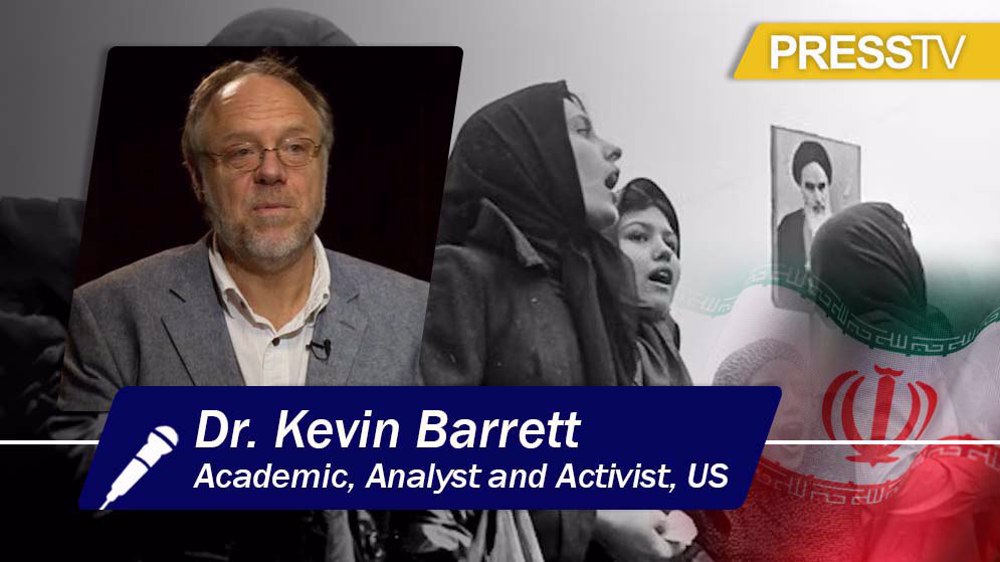
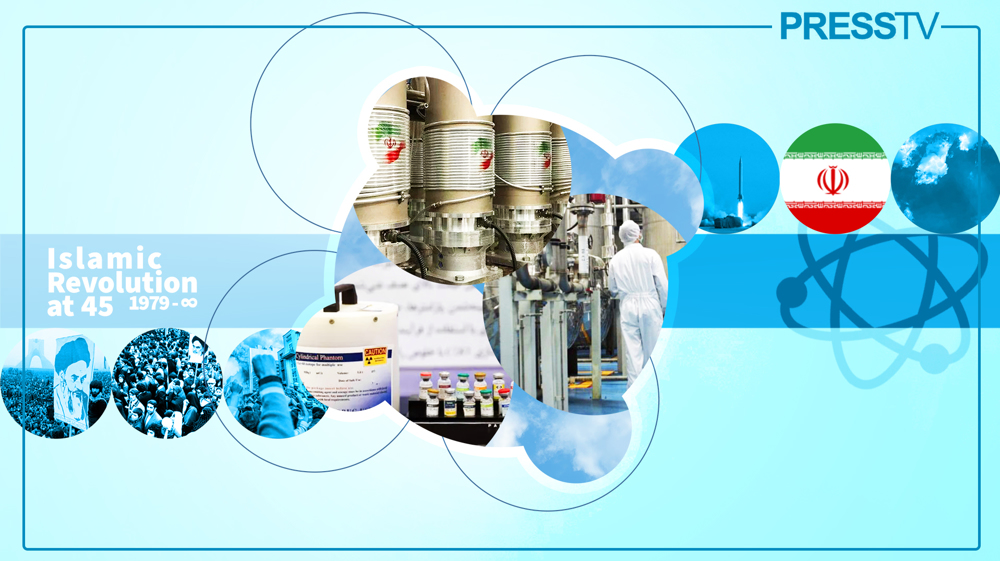
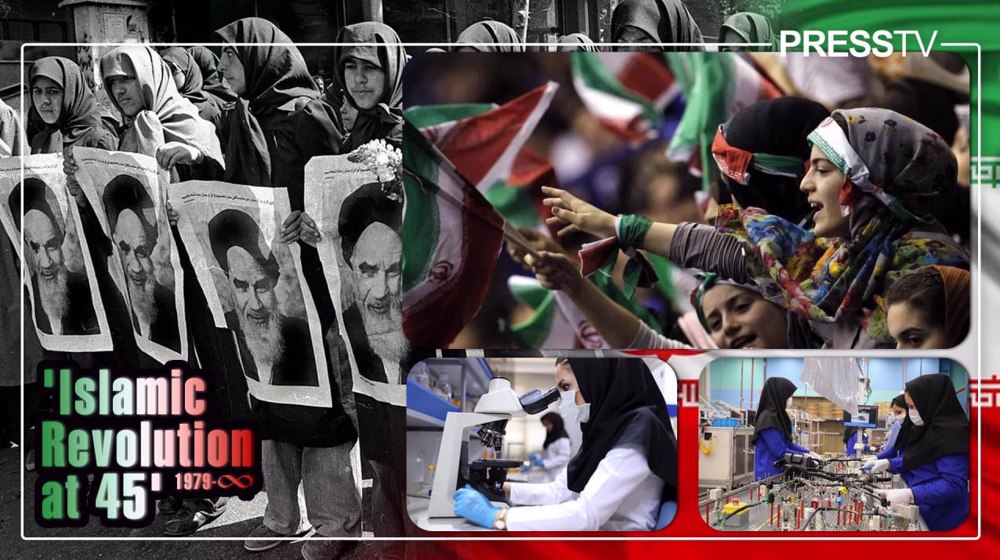
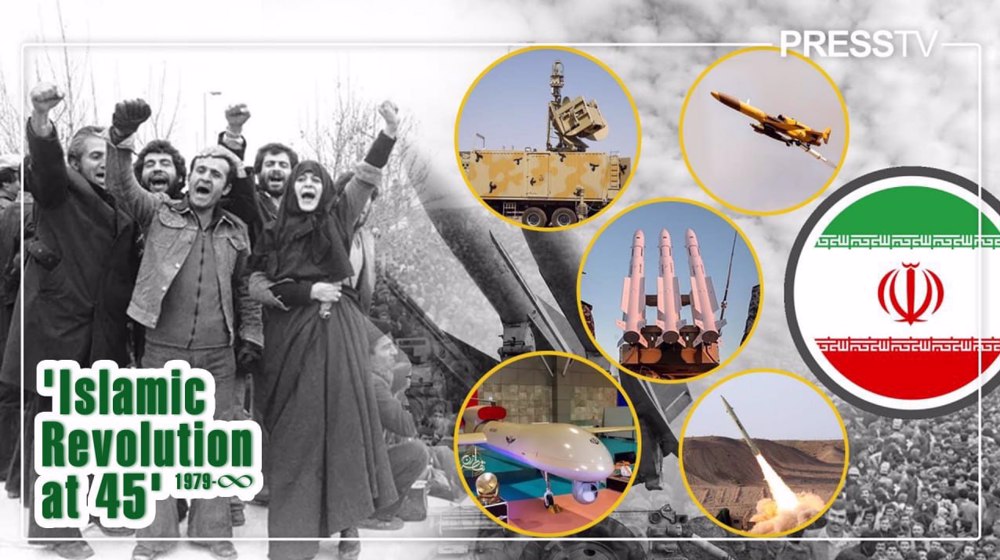
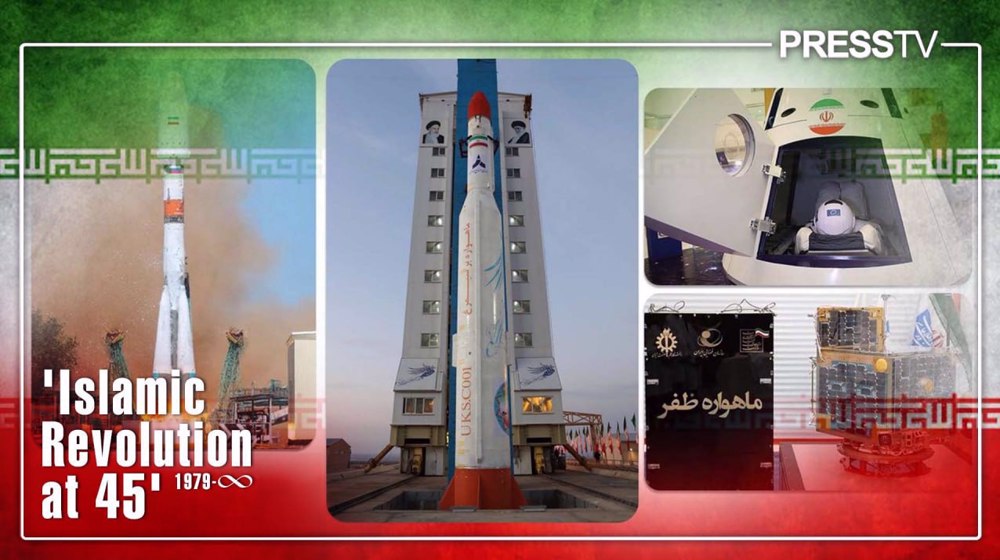
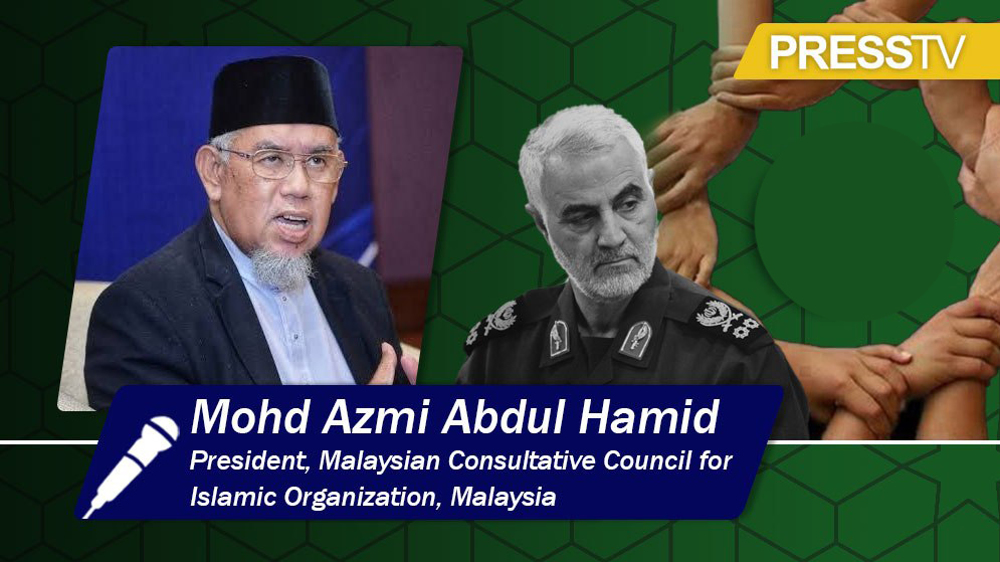





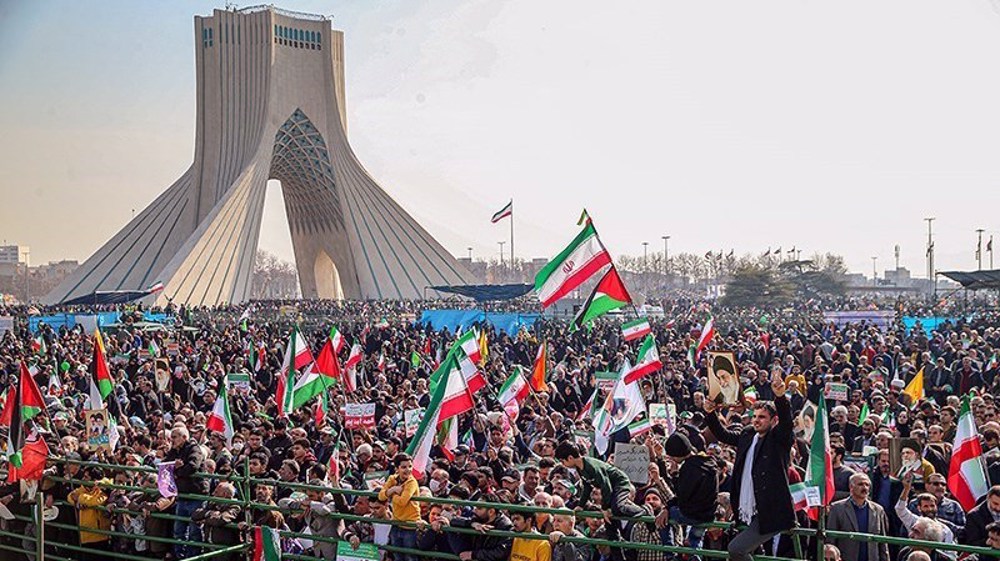
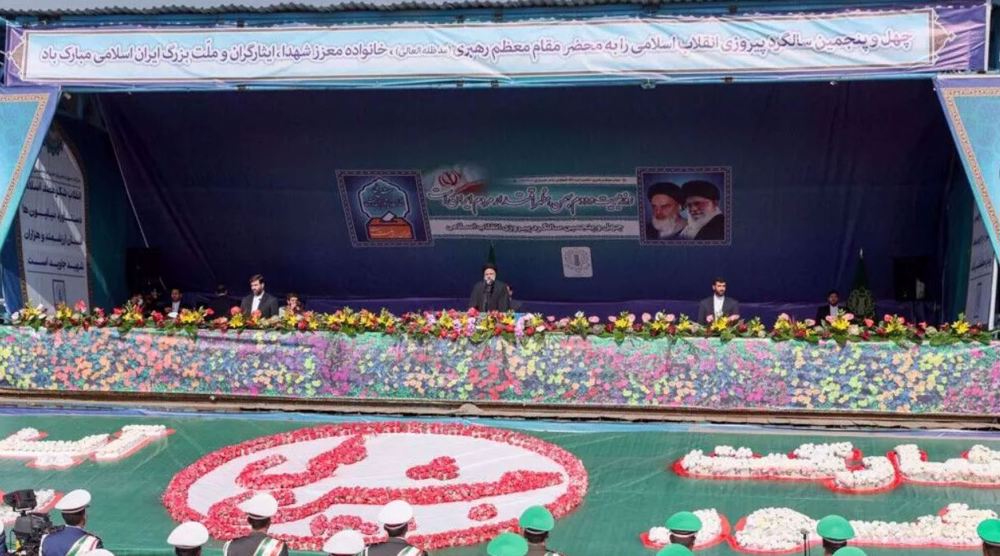
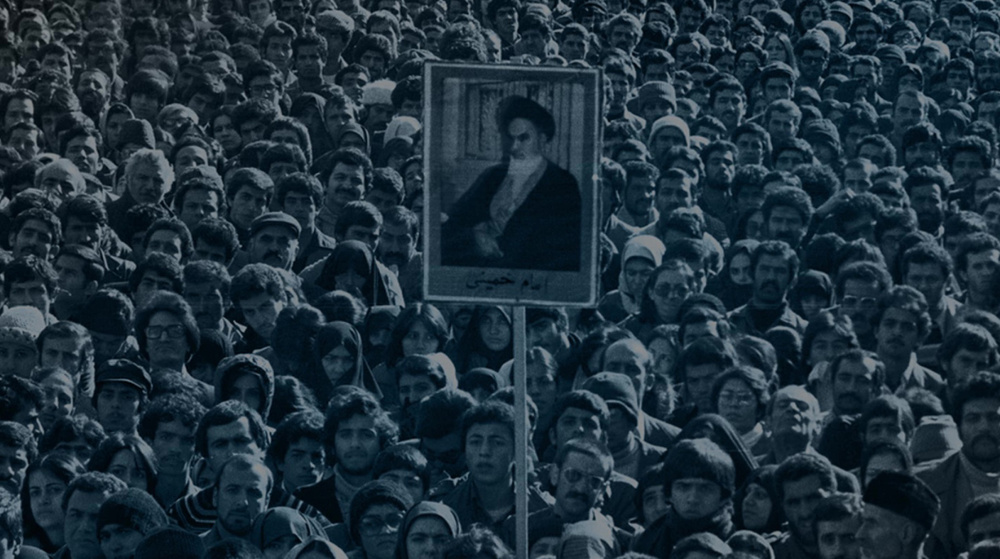

 This makes it easy to access the Press TV website
This makes it easy to access the Press TV website